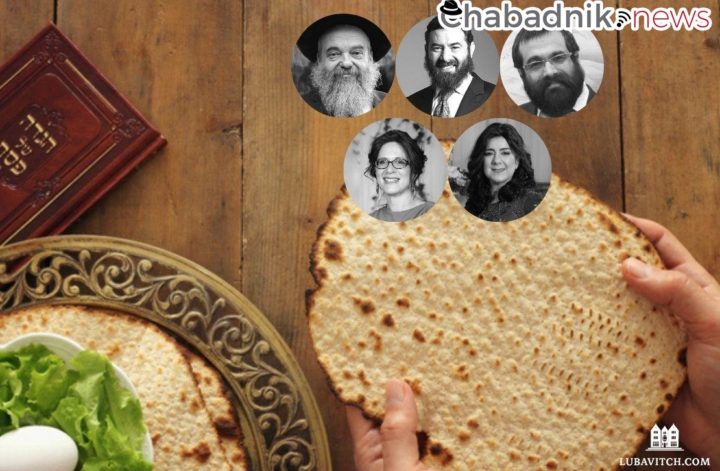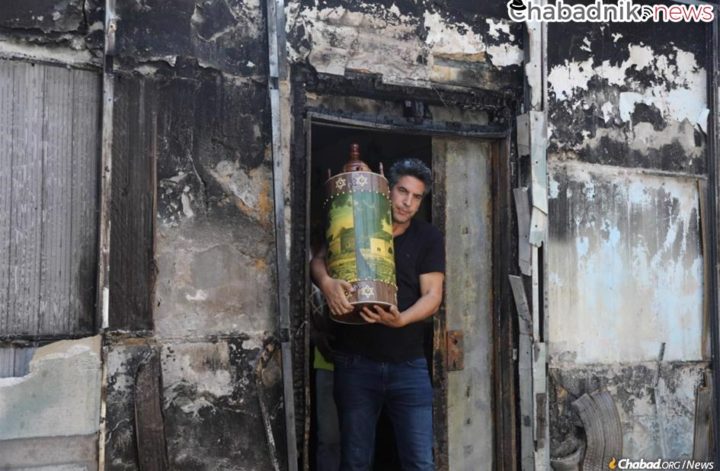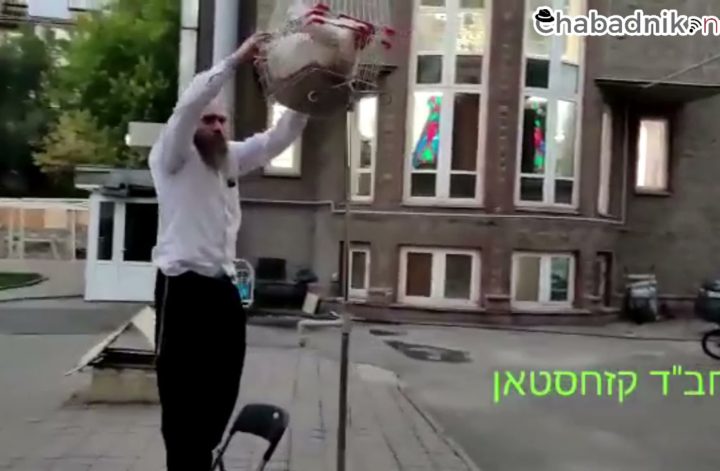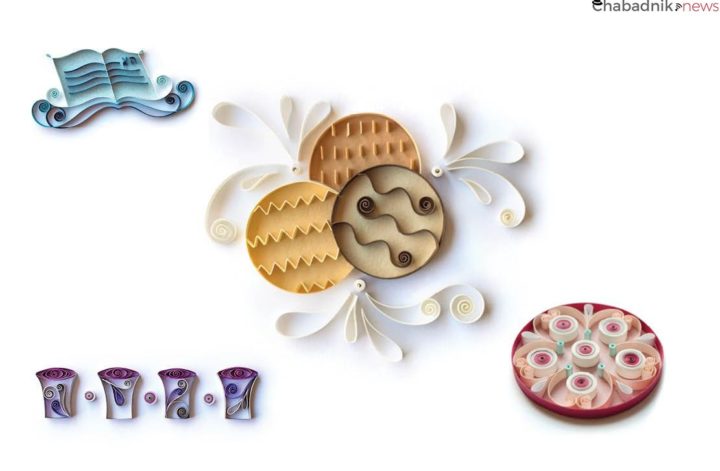What would they tell us today?
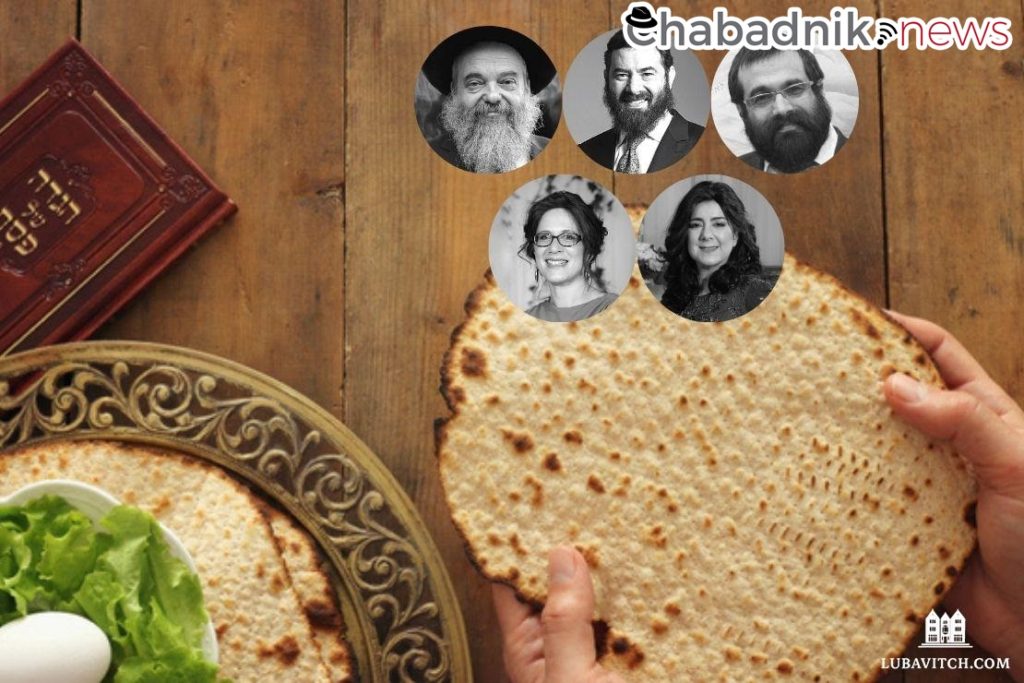
What Would They Tell Us Today?
Some of us would have loved to be a fly on the wall at the Seder described in the Haggadah:
It happened that Rabbi Eliezer, Rabbi Yehoshua, Rabbi Elazar ben Azaryah, Rabbi Akiva and Rabbi Tarphon were reclining [at a Seder] in Bnei Brak. They were discussing the exodus from Egypt all that night . . .
We asked Chabad representatives to tell us which biblical, Talmudic or medieval personality they’d like to have at their Seder table.
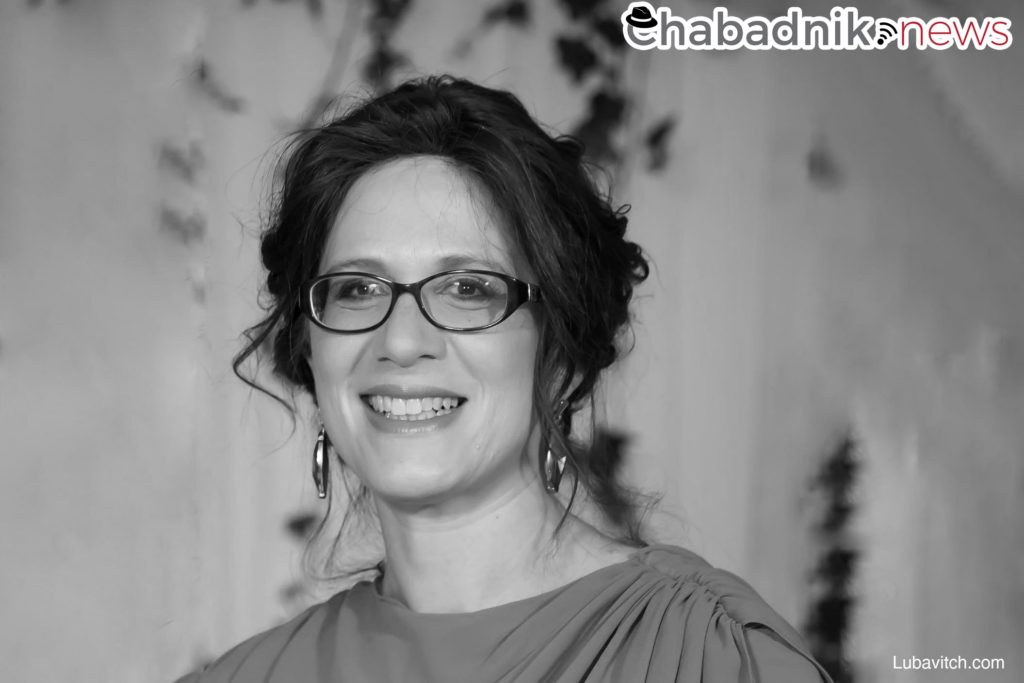
He Laughed When Everyone Cried
Rochel Baila Yaffe
Chabad of The Shoreline, Connecticut
Many people have passed through our Chabad House over the years, each of them with their own set of challenges. Sometimes, these challenges can become so overwhelming that they skew perspectives and confuse priorities. Sometimes, they consume us, depriving us of the opportunity to enjoy and appreciate life’s gifts, while also stunting our intellectual, emotional, and spiritual growth.
The great Talmudic sage, Rabbi Akiva, the host of the famous Bnei Brak seder we mention in the Haggadah, did not lead an easy life. His formal Jewish education didn’t begin until age forty. For years, he and his wife lived apart from each other, in extreme poverty. When the Romans discovered that Rabbi Akiva was studying and teaching Torah, they tortured him to death. And yet he is known for his positivity—for seeing the good in everything. “Everything that G-d does is for the good,” he famously said.
After the Second Temple’s destruction, Rabbi Akiva and some other sages (some of whom had been at the Bnei Brak seder!) traversed the desolate Temple Mount. While the other rabbis wept at the sight of the devastation, Rabbi Akiva laughed.
“Why do you laugh?” they demanded. Rabbi Akiva responded, “If the prophecies of destruction came to pass, then surely the prophecies of rebuilding and a joyous future will come to pass.” To this, the rabbis replied, “Akiva, you have comforted us.”
I would ask Rabbi Akiva to help us overcome the challenges of life and teach us to see the bigger picture. His joy and faith in a positive future would help us perceive the possibility of a perfected world. With the power of Rabbi Akiva’s guidance, we could collectively work towards making that vision a reality.
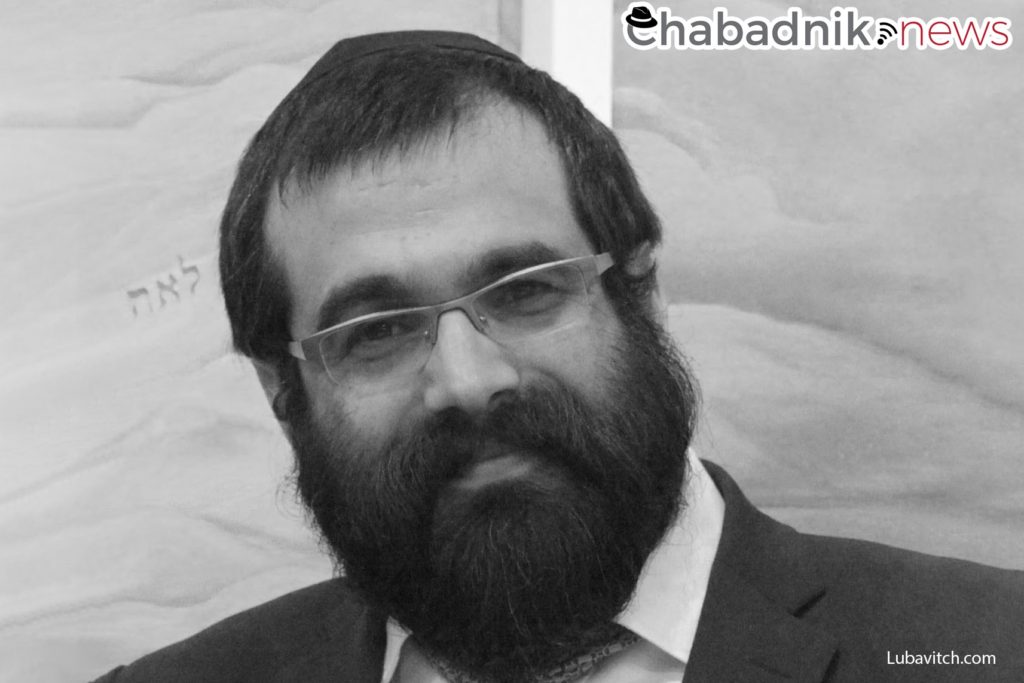
Never Say It Can’t Be Done . . .
Rabbi Meir Kaplan
Chabad of Vancouver Island, British Columbia
I’d love to invite Joseph, the son of Jacob, to be the guest of honor at our 2019 community Seder table here in Vancouver Island on Canada’s Pacific Coast. The challenges he confronted back in biblical days were not unlike the ones we struggle with today.
Once we get to the dinner part of the Seder, I’d want him to tell us how he managed to maintain grace and generosity of spirit towards his brothers who mistreated him so badly. What might he teach us about being kind to family members, regardless of how they behave toward us?
I’d want to ask him how he managed to stay positive while incarcerated on false charges. What was it like being the “Hebrew lad” imprisoned in ancient Egypt? How did he rise from the depths of despair—the lowest social stratum in Egypt? And what can we learn from that recovery as we negotiate the low points in our own lives?
How was it that while he sat in prison for more than a decade, with no parent or sibling to comfort him, he retained the capacity to be sensitive to others—to feel concern and empathy for his fellow prisoners?
And most of all, I’d want to ask him how he kept to his Jewish faith in an environment where he was not in the minority, but was the minority. If Joseph sustained his Jewish identity and Jewish practices as the only Jew around—first in prison, and later, as viceroy of Egypt—how can any of us ever say that it can’t be done?
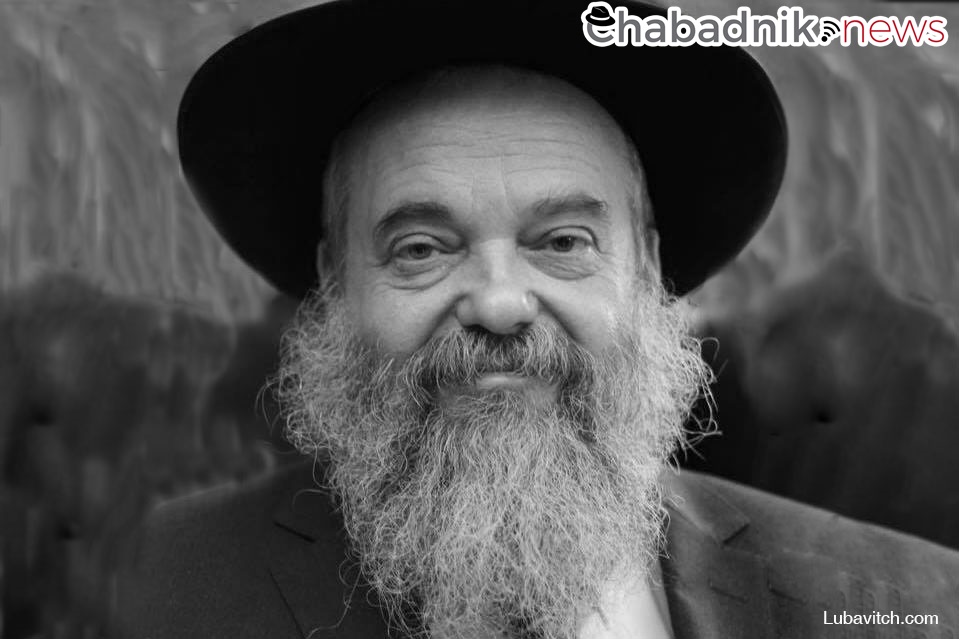
Two Roads Diverged
Rabbi Yosef Levin
Chabad of Greater South Bay, California
Rabbi Yochanan ben Zakkai, who led the Jewish people during the destruction of the Second Temple, was on his deathbed. When his students came to visit him, he began to cry.
His students asked: “Lamp of Israel, why are you crying?” And he said to them: “There are two roads before me [in the afterlife], and I do not know which road I will be taken. Should I not cry?” Rabbi Yochanan was unsure whether he would be rewarded or punished when he gives his final accounting for his life.
I’d love to ask Rabbi Yochanan ben Zakkai how he—one of our greatest sages—could have doubted whether he would go straight to the highest levels of paradise.
As a young man, I was deeply moved by a talk I heard from the Rebbe on this subject. He said that until that moment, Rabbi Yochanan was focused on bringing light to the world, attending to the needs of the people in very difficult times. He did not have the luxury to think about himself—not even of his own spiritual state. Only now on his deathbed, when he had finished his life and work, did he start examining the purity of his motives.
Examining the self can be a very good thing—until it becomes an unhealthy preoccupation. Here in Northern California, the center of the self-help universe, it’s easy to lose sight of this. As much as I value introspection and personal growth—and I do—I fear that focusing on our shortcomings may distract us from the needs of our communities, which require our attention and action.
Passover reminds us that we need to take the leap and act. Indeed, Judaism teaches us that our actions are more important than our thoughts. If we focus on the self too much, we miss opportunities to serve.
So I’d be honored to welcome Rabbi Yochanan ben Zakkai to my seder table in Palo Alto. I would ask him how he managed to keep his focus and make a mark every day of his life (and he had a long life), always for the benefit of others, selflessly.
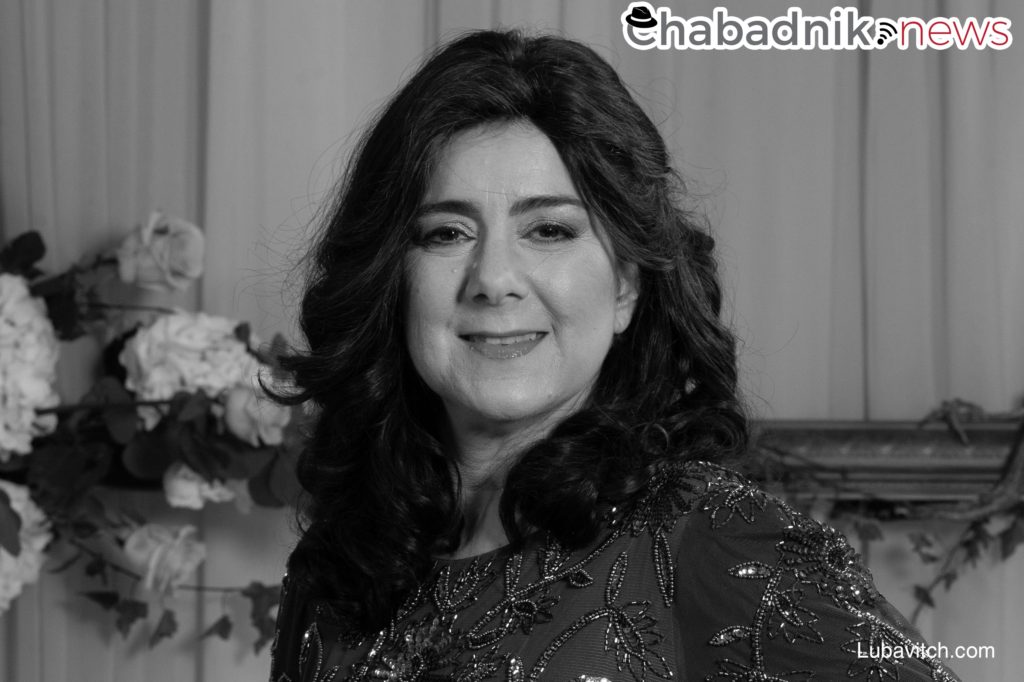
A Talmudic Era Grassroots Activist
Chanie Zalmanov
Chabad of Eastern Queens, New York
Rabbi Hiya was a second century sage, but I like to think of him as the original grassroots community activist. In the years after the destruction of the Second Temple, the Jews who remained in Israel were demoralized by many years of harsh decrees and bloody battles. During this period, the study of Torah had become erratic at best, and Rabbi Hiya realized that the Jewish people were at risk of losing their heritage and identity.
What did the sage and scholar do? He planted and reaped flax and used the flax to make nets. He used the nets to catch deer which he slaughtered and fed to hungry children. He then used the deer skin as parchment on which he wrote Torah. And with these scrolls, he traveled from village to village, educating an entire generation of Jewish children.
Slowly, our dying people returned to life . . . and to the life-giving Torah.
Rabbi Hiya’s story comes to mind whenever I perform the mundane work that comes with running a Chabad House, like moving furniture to accommodate more visitors, cooking, and setting tables and buffets. When I am busy hiring teachers for our schools, comforting crying children in our summer camps, and holding the hands of grieving mourners, I am reminded of Rabbi Hiya. When instead of finishing that stimulating book that I am in the middle of reading, my time is consumed with counseling teens and schmoozing with lonely seniors, I am reminded of Rabbi Hiya.
He didn’t delegate this task to someone on a lower stature. After all, he was one of the most renowned scholars of his time, did he have to oversee this whole project from start to finish? Surely he could have asked someone else, someone less brilliant, to plant the flax or catch the deer. But he didn’t. Instead, he did what needed to be done, even when it seemed to come at the expense of his own personal growth.
I am sure he would validate the endless daily tasks that consume so much of our energy. How would he guide us to break down our seemingly impossible dreams into short to-do lists and make them a reality? What would he tell us about affecting change in our communities these days? Oh, how I would love to hear his thoughts on how to practically solve the issues that plague us: Poverty. Ignorance. The scarcity of quality Jewish programming. Anti-Semitism. . . .
Maybe he would remind us that mundane work has a purpose: to ensure that Judaism continues to thrive. Isn’t that the story of the Exodus? Wasn’t that Rabbi Hiya’s story back in the day? Isn’t that our story, today?
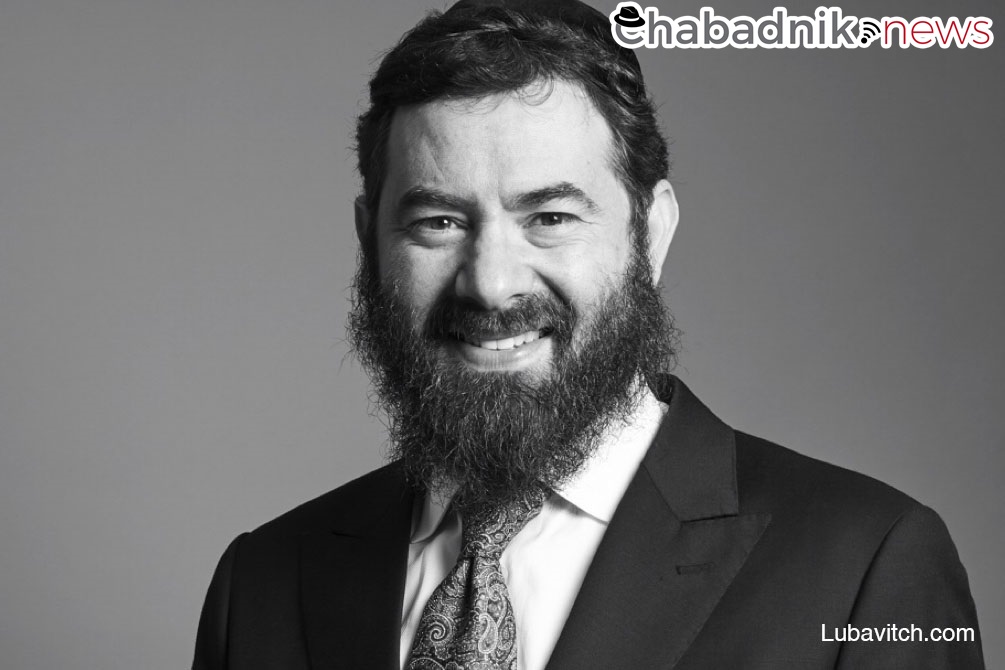
Go With What You’ve Got
Rabbi Dov Greenberg
Chabad at Stanford University, California
Here at Stanford University, I’ve noticed that students often lack confidence in their abilities and potential. They underestimate their power. So I think they’d be fascinated to have Moses join us at our Seder. After all, Moses doubted himself too.
At the burning bush, G-d appeared to Moses and told him to lead the Jews to freedom. Moses argued with G-d, saying that he had already tried to help the Jews and failed. He felt that neither the Jews nor Pharaoh would take him seriously. And he had a speech impediment that made him self-conscious. He felt unqualified for the task.
Then G-d simply said to Moses: “What do you have in your hand?” G-d shifted Moses’ attention away from anxiety over the past and the future. Essentially he said, use what you have now. You have a staff in your hand, use it. G-d had already imbued Moses with everything that he would need in order to fulfill his destiny. And the same goes for all of us.
We can all make excuses: “I’m not qualified. I’ve made too many mistakes. I don’t have the talent, the eloquence, the confidence.” G-d says: “I know all that. I created you. But what’s in your hand? All I ask is that you use it.”
Before slaying Goliath, David thought, “G-d, I’m young. Goliath is a powerful warrior. How can I fight him?” And G-d said, “David, I know you don’t have air support backing you up. But what’s in your hand? A slingshot? Use it.”
Esther said, “G-d, I can’t go in there and speak to the king. I’m inexperienced. He won’t listen to me.” And G-d said, “Esther, what’s in your hand? Can you throw a wine party? I’ve got you covered.”
Pharaoh’s daughter heard baby Moses’ cry. She thought, “It’s one girl against an empire.” And G-d said. “What’s in your hand?” She said, “Nothing.” G-d said, “Well, if all you’ve got is your hand, use your hand, for G-d’s sake.” She extended her hand towards the basket and changed all of human history.
I suspect that Moses would ask the students at Stanford’s seder, “What’s in your hand tonight?” It may not seem like much, but G-d wants you to use it. He wants to pour His blessing into the work of your hands so that you can lead the rewarding Jewish lives He has in store for you.
Source: https://www.lubavitch.com/five-communal-leaders-share-their-dream-seder-guest/

